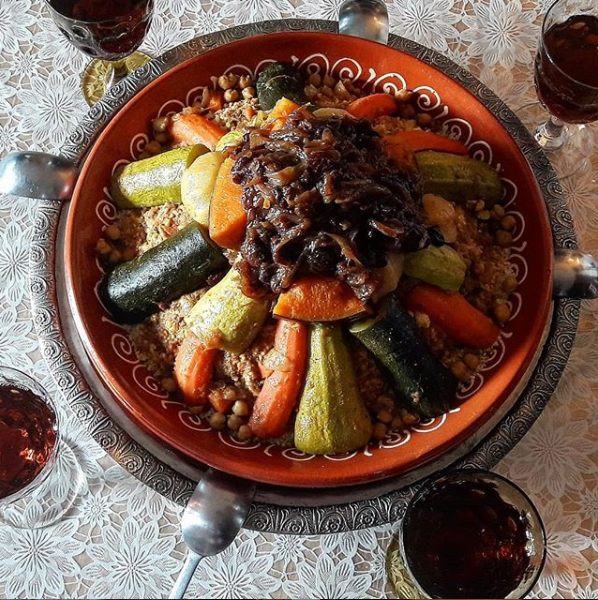Couscous: Morocco’s Treasured Grain
Couscous is more than just a staple food in Morocco; it’s a symbol of tradition, community, and the art of slow cooking. This tiny, granular semolina pasta is the heart and soul of Moroccan cuisine, often served on special occasions and family gatherings. Its preparation is an art form, requiring patience, skill, and a deep appreciation for the culinary heritage of Morocco.
The process of making couscous begins with rolling moistened semolina wheat into small granules, a technique that has been passed down through generations. These granules are then steamed in a special pot called a couscoussier, which consists of a bottom pot for stewing meat and vegetables and a perforated top pot where the couscous is steamed.
What makes Moroccan couscous unique is its light and fluffy texture, achieved through multiple rounds of steaming and fluffing with a fork. This labor-intensive process is a labor of love, resulting in a dish that is delicate yet hearty, with each grain perfectly separate and infused with the flavors of the stew.
Moroccan couscous is traditionally served with a rich and savory stew made with meat, vegetables, and a blend of spices. Common ingredients include lamb, chicken, carrots, potatoes, onions, and chickpeas, flavored with spices like cumin, turmeric, cinnamon, and paprika. The stew is slow-cooked to perfection, allowing the flavors to meld together and create a dish that is both comforting and aromatic.
Couscous is not just a meal in Morocco; it’s a social event. Families and friends gather around a large communal dish of couscous, using their hands to scoop up the tender grains and flavorful stew. This act of sharing food is a deeply ingrained part of Moroccan culture, symbolizing hospitality, generosity, and togetherness.
In conclusion, couscous is more than just a dish in Morocco; it’s a reflection of the country’s rich culinary heritage and its values of community and sharing. Whether enjoyed in a bustling market or in the warmth of a family home, Moroccan couscous is an experience that delights the senses and nourishes the soul.




